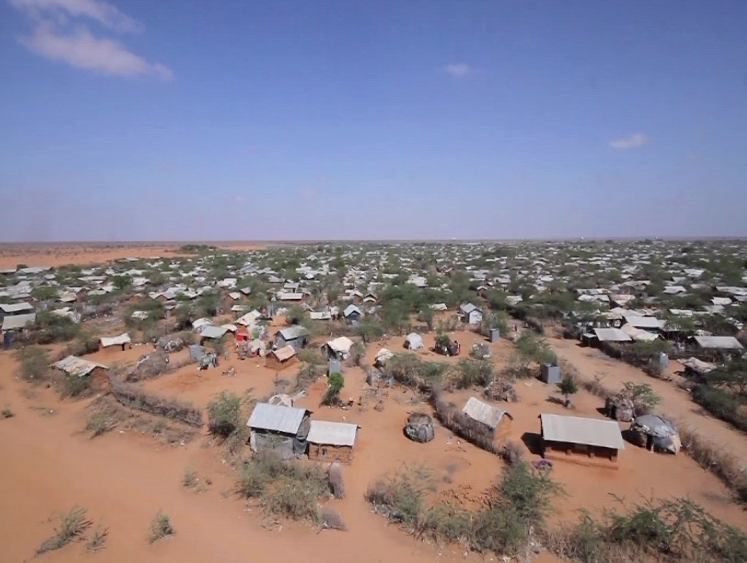Doctors Without Borders (Médecins Sans Frontières-MSF) have called for swift interventions following cholera outbreak at Daadab Refugee Camp.
They say if not quickly handled, the situation could get catastrophic.
At least 2, 786 people have already been affected by the disease, with MSF warning that there is an imminent risk of outbreaks of other gastro-intestinal diseases.
MSF Country Director for Kenya Hassan Maiyaki has pleaded with aid agencies to take swift action to address the sanitation concerns and congestion at the camp.
He says more funding is required to address the urgent needs.
Crowded camps
Daadab Complex which is home to three refugee camps host in excess of 300, 000 refugees from the neighbouring countries.
The rapid population growth in the camp is attributed to extended drought in Somalia, leading to severe overcrowding and increased pressure on existing services, including supplies of drinking water and latrines.
“The gravity of the situation demands urgent attention, particularly in the areas of water, sanitation and hygiene,” Maiyaki said.
He added that they have already seen the worst cholera outbreak in five years and the risk of other epidemics breaking out is high.
He added; “If this occurs, it would outstrip medical capacity in the camps, with potentially catastrophic consequences.”
The current cholera outbreak is linked to reductions in essential water and sanitation activities in the camps, including providing clean water, distributing soap, constructing and repairing latrines, and organising waste management.
The gravity of the situation demands urgent attention, particularly in the areas of water, sanitation and hygiene
MSF Country Director for Kenya Hassan Maiyaki
Humanitarian organisations working in the camps reports that almost half of the camps’ population have no access to functional latrines, leading to open defecation in and around the camps, which raises the risk of disease outbreaks.
The Kenya ministry of health and humanitarian agencies carried out cholera vaccinations and health promotion campaigns to help people protect themselves from the disease, but curbing the outbreak will require improvements to water and sanitation infrastructure.
Urgent appeal to avert worst situation
MSF Medical Coordinator in Kenya Nitya Udayraj notes; “Despite our health promotion activities and vaccination campaign, controlling this cholera outbreak remains elusive without the prioritisation of resources towards sustained preventive water, sanitation and hygiene interventions.”
Udayraj says other pandemics such as Hepatitis E could crop up if the sanitation of the area is not scaled up.
MSF runs a hospital in Dagahaley, one of the three camps that make up Dadaab. Here, MSF teams have reported more than 1,120 cases of cholera and two deaths since the start of the outbreak in November 2022.
MSF water and sanitation teams are currently trucking 50,000 litres of drinking water each day to the outskirts.

They have also built 150 communal latrines, both within the camps and on the outskirts, where around 9,000 newly arrived refugees have set up rudimentary shelters in the surrounding desert.
So far, MSF has provided around 1,000 of these households with plastic sheeting, mats and liquid soap. But much more needs to be done to meet people’s needs and prevent a humanitarian crisis.
The Kenyan government has announced plans to reopen a fourth camp – Ifo 2 – to accommodate new arrivals and alleviate the strain on resources in the existing camps.
MSF is calling for these plans to be enacted as a matter of urgency, and to include increased funding for water and sanitation across all four camps.
“The relocation to Ifo 2 should be hastened to ease pressure on the existing camps,” said Maiyaki.
